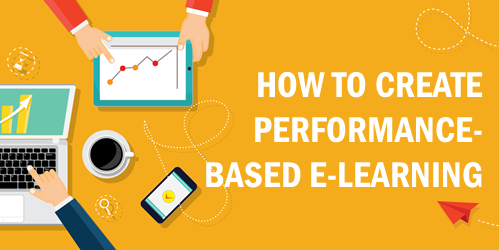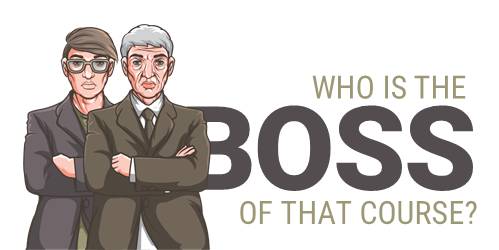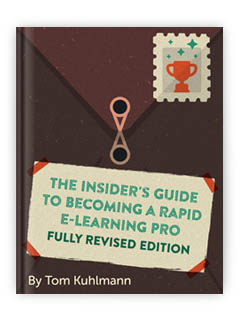
Most e-learning courses have some sort of stated learning objective. Ideally, the course is designed to meet the objective. From my experience, many of the objectives in e-learning courses aren’t very actionable. They lack clarity and most importantly, they lack measurement. And those are the two things you can do to ensure your e-learning courses are effective.
Create Clear Learning Objectives for Effective E-Learning
Many times we’ll see learning objectives like this: understand company policies or learn how to give feedback. These types of objectives are fuzzy. What does “understand” or “learn” mean?
Objectives should be more specific, such as, a new manager applies X policy in Y situation. The objective identifies the learner, what will be covered, and when it will be used.
Measure Understanding of Objectives for Effective E-Learning
When crafting learning objectives, you should at the same time think about how they are measured. If the goal is for the manager to understand company policies, then there has to be a way to prove understanding. Going back to the point above, the manager applies the correct policy in a given situation.
Thus, if you want to determine how well the manager understands a given policy, you craft a situation in which she has to apply it correctly. At this point, you have a way to measure understanding.
When outlining course objectives, step away from the fuzzy terms and focus on actionable words that also guide you towards a means of measurement. This helps you craft the right objectives, pull in the right content and activities, and build a way to properly assess understanding.
Events
Free E-Learning Resources

E-learning courses generally fall into one of two buckets: tell people something or show them how to do something. One is all about the information and the other about performance. Both approaches have value.
The reality is that a lot of e-learning is information-based and mostly driven by compliance requirements. Outside of certification of completion, there’s little performance requirement other than compliance to the policies or directives.
For example, generally you don’t have an organization full of sexual harassers and then present a course on sexual harassment and all of a sudden they’re no longer harassing. Instead, the course informs about sexual harassment and the organization’s standard. And the expectation is compliance to that standard. In that sense, the course is information-based because other than compliance, there’s not a performance expectation.
Performance-based E-Learning
On the other side are performance-based courses where the goal is to change behaviors or teach new skills. Those are courses that make a difference (in the sense that one goes from A to B). So how do you know those courses will make a difference?
Here are a few key thoughts to help get there.
- What are the business objectives?
- Why aren’t they meeting those goals today?
- What training do they currently receive (if any)? Why hasn’t it worked?
- How is the course linked to meeting the objectives?
- What do you expect the learners to do after the course that they’re not doing today?
- How will you measure the success of the course?
Performance-based courses are tied to the performance requirements: what are they supposed to do to meet X objective?
Focus on the performance requirement and the actions associated with it. Then build your training around that. In a sense, I like the course to “throw people into the pool.” This gets them to make the types of decisions they’ll make in the real world. If the course is performance-based, design it around those decisions rather than pages of content and policies. All of that content is important, but you can tease it out in the decision-making process and subsequent consequences.
Courses make a difference when they make things different. If you course doesn’t change behaviors or teach new skills, then it’s probably not performance-based. And how you approach the design of it is different than just pushing out information.
Events
Free E-Learning Resources

You just spent months working on an e-learning project. You tested it. Got feedback. Made adjustments. And now you’re ready to launch.
But then the person for whom you’ve been building the project says, “Before we launch, let’s get my manager’s approval.”
And at that point, things to start to unravel. The boss wants to make changes. The legal team gets involved. Marketing comes into make sure the messaging is right. And so it goes.
This stuff happens. We’ve all been there.
When building an e-learning course, one of the first things to do is find out who the final authority of the project is and get that person involved right away. You need to understand why the course exists and what it will take to get it launched.
A few core goals when meeting with the final authority:
- Clarify objectives
- Identify metrics for success
- Determine the review and approval process
- Get an approved budget
Above is a list of a few considerations, but there are plenty more. The main thing is to get the key decision makers involved early and identify who is the final authority. From there determine the scope of the project and get an agreed upon service level agreement or contract.
And then work from that.
Don’t let your project slip away without those details and be derailed right before you’re done.
Two questions:
- What types of things derail your e-learning projects?
- What process do you use to come to an agreement before starting?
Events
Free E-Learning Resources












3
comments